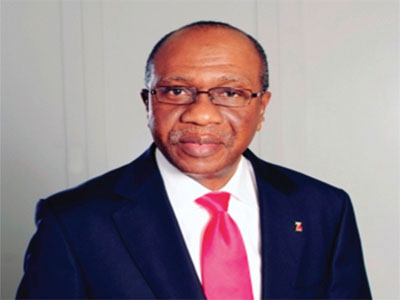Dollar may sell for N320 at parallel market this week, still exploring ways of conserving foreign exchange (forex), the Central Bank of Nigeria (CBN) has discontinued its daily auction to banks . The banks are now to begin self-sustenance by sourcing forex by themselves.
The development may mean that the regulator will now be intervening in the foreign exchange market occasionally and will leave banks with the determination of how much of the deposited foreign currencies by the customers will be disbursed back to them.
CBN had on Monday unveiled a new foreign exchange plan, in which bureau de change (BDG) operators were shut out of the official weekly intervention.
But an analyst who spoke to The Guardian on a condition of anonymity said the move was a subtle approach similar to that of the BDCs.
The Director of Financial Market, CBN, Emmanuel Ukeje, affirmed the apex bank’s position, saying: “We will not sell (dollars) on a daily basis any more. Whenever we do the auction everybody bids.”
Before now, commercial banks used to make naira provisions to the CBN with their bid for foreign exchange ahead of the auction, which is conducted daily for sectors.
According to Ukeje, banks are now responsible to their customers as they accept their foreign currency deposits, warning that banks cannot come to CBN to ask for dollars to settle their obligations, hence the need for them to manage their dollar resources effectively.
He said: “If a customer gives a bank dollars and wants the bank to transfer them, inadvertently, what the person has done earlier is to let the bank hold that money on the person’s behalf and to bring it out when the person demands it.
“Banks that issue the naira and dollar cards take responsibility now. They must make sure that they have enough of the denomination to back up your demand. This is different from before, when they commit and run to CBN because it would immediately become a national issue.”
Meanwhile, the persistent crash of the naira on the parallel market may not have reached its climax as speculations are rife that the local unit will hit N320 to the dollar next week, if the shortage persists.
Already, the initial response to the regulator’s announcement to end dollar intervention in the BDC’s segment has remained sharp, with demand for dollars rising.
However, yesterday the naira was steady at N300 to the dollar at the parallel market, while the official interbank market also remained unchanged at N199.50 per dollar.
CBN had at the weekend, substituted the outright ban on dollar sales to BDG with an offer that they should now source their forex from International Oil Companies (IOCs).
The Guardian learnt that the earlier move to end the dollar intervention for the BDCs was to prevent a further depletion of Nigeria’s foreign exchange reserves.
The decision to use foreign exchange earnings from IOCs, which is part of the autonomous sources, was reached at the end of a meeting between CBN and the leadership of the Association of Bureau De Change Operators of Nigeria (ABCON).
Henceforth, whatever amount available from the sources will be shared between BDCs and commercial banks at rates that will ensure the stability of the naira.
“The issue now is the reserve, which is dwindling and they don’t want to use it for market intervention. The only thing is that the volume is small. It is now like a competitive market, but no matter the volume, it is better than shutting down the market.
“The new deal will ensure that no one sells at higher margins, which will also compromise the naira exchange rate, and it is a very good development. But our direction now is to form a crack team to ensure that any of our members found wanting will be dealt with,” the Acting President of ABCON, Alhaji Aminu Gwadabe said.
ABCON had earlier at the weekend, in a statement issued after its emergency general meeting, sought the reversal of the policy; review of the N35 million caution fee; and a definition of “autonomous sources” contained in the CBN’s statement.
It sought inclusion on the Bankers’ Committee membership; regular trainings for BDC operators; and fulfillment of a pledge by the CBN to engage the operators in foreign transfer transactions similar to Western Union.
But Gwadabe noted that given the huge demand for foreign exchange, supply shortfalls and the concomitant widening of the gap between the official and parallel market exchange rate, many individuals may not be able to resist the temptation to engage in rent-seeking and round-tripping.
These individuals are not limited to BDCs, but also include banks and other participants in the foreign exchange market. The only way to deter such illegalities is to impose heavy sanctions including cancellation of their operating licence.
“We urge Governor Emefiele to do what Joseph Sanusi as CBN Governor did in 2001 when he suspended the foreign exchange dealership of 21 banks for foreign exchange malpractices.
“We also urge him to do what his immediate predecessor, now the emir of Kano did in 2013 when he cancelled the operating licence of 20 BDCs including FBN BDC for the round-tripping of foreign exchange,” he said.







